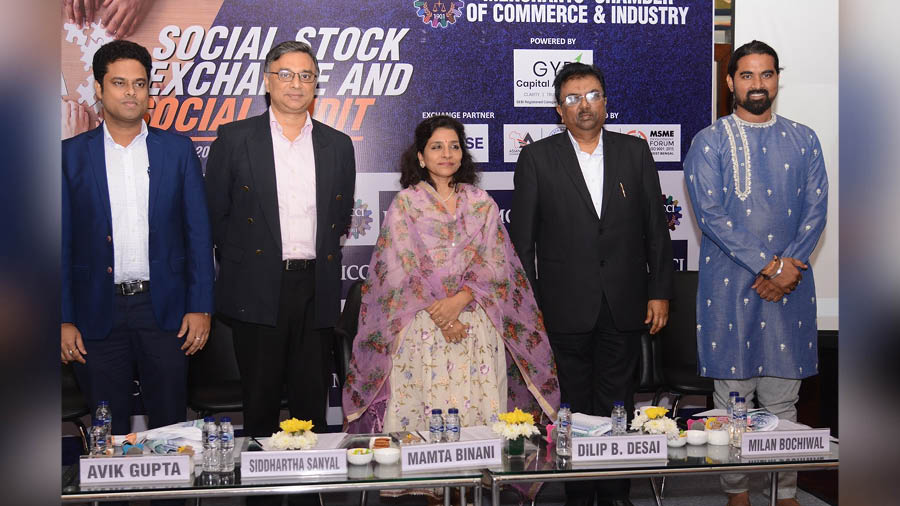The Merchants’ Chamber of Commerce & Industry organised a special session on Social Stock Exchange and Social Audit on Friday. It was curated by Mamta Binani, former president ICSI & chairperson of the Legal Council of Merchants’ Chamber of Commerce and Industry.
Aniket Talati, national president, Institute of Chartered Accountants of India; Rupanjana De, central council member, Institute of Companies Secretaries of India; Vijender Sharma, national president, Institute of Cost & Management Accountants of India; Dilip B. Desai, chairman, DHC - Desai Haribhakti; Rajnish Goenka, national president, MSME Development Forum; Rachana Bhusari, vice-president, National Stock Exchange of India Ltd; Milan Bochiwal, advisor, GYR capital advisors; merchant banker, Siddhartha Sanyal, chief economist & head research, Bandhan Bank, Avik Gupta, senior manager, Primary Markets Relationships, National Stock Exchange of India Ltd and Sahana Bhowmick, director, DITO Social Welfare Association spoke at the session. While Desai, Sanyal, Gupta & Bochiwal were present at the session, the rest spoke online.
Speaking on the occasion, Binani said, “The Social Stock Exchange (SSE) was created as a platform to enable social enterprises to access a variety of funding organisations. It bridges the gap between the For-Profit Organisations (FPO) and the Non-Profit Organisations (NPO) by serving as a medium for enterprises to seek finance for their social initiatives, acquire visibility and provide increased transparency and accountability about fund mobilisation and utilisation. The SEBI's ICDR Regulations for 2018 provide 16 compelling criteria, such as addressing hunger, poverty, and malnutrition, advancing education, employability, equality, and environmental sustainability, among other important considerations."
Most speakers felt social enterprises have now become more important than ever, especially in the COVID-induced pandemic scenario, where social enterprises, be they profit-making or non-profit organizations, played a prime role to keep the world in sustenance.
